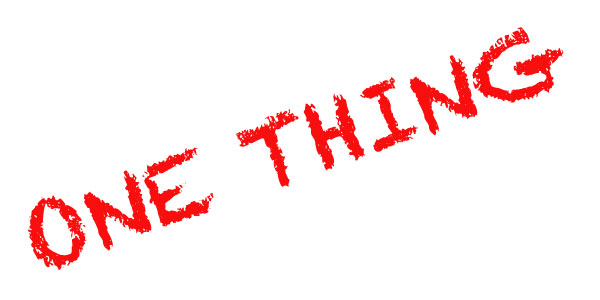Not too long ago, I was working 40 hrs/week as an electrical engineer, running an online store with my wife, writing posts for my blog, putting out a weekly podcast, teaching an ecommerce course and holding an annual conference all at the same time.
In fact, it was only recently that I quit my full time job as a microprocessor designer even though I loved being an engineer. If you are curious, here’s why I finally quit.
Editor’s Note: For a breakdown of my various businesses, check out my latest income report.
Now on the surface, this sounds like a lot to have on one’s plate but here’s the thing…
I rarely feel overcommitted or stressed out. And I always have plenty of free time for family and friends.
As a Dad, I attend all of my kid’s activities. My family eats dinner together every night and weekends are spent with the kiddos.
While I don’t consider myself an especially productive person, my colleagues tell me otherwise. So this past week, I narrowed down some of my most productive habits that will teach you how to be more productive.
Here’s what I came up with.
Get My Free Mini Course On How To Start A Successful Ecommerce Store
If you are interested in starting an ecommerce business, I put together a comprehensive package of resources that will help you launch your own online store from complete scratch. Be sure to grab it before you leave!
Habit #1: Focus On Completing One Task Per Day
One of the most useful habits that I’ve picked up over the years is to avoid multitasking.
When you try to do multiple things at once, your brain wastes a lot of time context switching between tasks. And if you take on too much, you can easily become overwhelmed and lose track of what’s important.
To maximize productivity, here’s how I set my schedule.
The night before, I decide on one task that I want to get accomplished the following day and I only work on that one task until it is done.
In fact, my only goal for the entire day is to finish that one thing. And I’m not permitted to work on anything else UNLESS I’ve completed my objective. Everything else is secondary
Now what’s nice about this technique is that it forces you to prioritize and you must NOT get distracted by other tasks even if they are assigned to you by your spouse:)
For example, when my wife comes home and tells me that she needs something done, I’ll usually respond with…
Sorry, can you send me an email, assign a priority level to this task and I’ll put it on my list?
Only in rare cases when she threatens to make my life miserable do I drop what I’m doing and stray from my primary objective.
In addition, while I’m working on my one thing…
- I don’t check email.
- I don’t check Facebook or social media
- I don’t talk to anyone.
In fact, you’ll often find me with my headphones on, the door to my office closed, my blinds completely shut and a single desk lamp pointed at my keyboard. No distractions!!!
Note: The dark room with a single light on is a concentration technique I picked up in college. Give it try!
By focusing all of my effort on a singular objective, I often complete my task well before the day is over. And after I’m done, everything else I get done is gravy.
Psychologically, this makes me feel good about myself because I finish one thing completely instead of having a bunch of partially completed tasks.
Habit #2: Respond To Email When You Feel The Urge To Waste Time
Contrary to what most productivity experts will tell you, I purposely respond to emails first thing in the morning.
Here’s why.
I typically wake up 5:30am every day. And usually when I wake up, I’m too lazy to get out of bed so I end up wasting time.
In fact, I used to watch YouTube or listen to podcasts on my phone for 2 hours before starting my day.
So now, whenever I get the urge to waste time on mindless activities like watching YouTube videos or Facebook, I start replying to “easy to answer” emails in my inbox.
Note: An “easy to answer” email is one where the question is clearly stated and concise. Because I get between 100-200 emails per day, the more complicated the email is, the less likely that I’ll respond. But I do try to get through all of them.
By answering emails first thing in the morning during my dead time, I can often get through most of my daily queue before I start doing my “real work” which begins at 7:30-8am.
Responding to emails has always been a chore. Not only does it kill my productivity and but it also gets in the way of true progress.
So by substituting Facebook/YouTube with email, psychologically I feel like I’m getting stuff done during a time that is normally wasted.
Habit #3: Don’t Take Meetings Unless There’s A Clear Agenda
These days, I’m constantly bombarded with meeting requests.
Company A wants to give me a demonstration of their product. Company B wants to form a partnership. Blogger C wants to “connect” and see how we can work together.
I avoid almost all of these meetings unless there’s a clear agenda and a clear benefit. And I especially dislike when people want to randomly “connect” on Skype.
It’s one thing if that person wants to record a podcast. But chatting aimlessly with strangers is not a productive use of my time.
Today, I only take random meetings with people if
- There’s a clear proposal on the table
- It is someone that I want to get to know
- There’s a set end time for the meeting
Note: My hatred for meetings is a byproduct of working as an engineering director where I was often stuck attending poorly planned meetings that were a waste of time:)
Habit #4: Spend As Little Time As Possible With High Maintenance Customers
As part of running any business, you will eventually encounter high maintenance customers that require an inordinate amount of support.
And more often than not, it’s your cheapest and least profitable customers that suck up most of your time.
For example for my online store course, my lowest tier payment plan customers tend to be more demanding and less understanding.
They are extremely frugal, try to extract every last dollar and sometimes make unreasonable demands on my time. When I first launched my class, I devoted extra resources catering to difficult customers but today I just refund them and move on.
After all, I’d much rather spend time helping thoughtful individuals who are taking action instead of complaining.
In the case of our online store, we don’t waste any time dealing with customers who are irate or rude on the phone. Typically we’ll refund them immediately and never deal with them again.
Life is too short to get upset over low profit, high maintenance customers.
Habit #5: Set Aside Time To Make Forward Progress
When you are running a small business with limited resources, it’s very easy to get caught up in the day to day. And if you’re not careful, you can spend the majority of your time treading water instead of growing.
Simply prioritizing your tasks isn’t good enough. Why?
It’s because your highest priority actions may NOT be inline with your overall growth objectives.
For example with my online businesses, there are always fires to be put out. Something is always broken and there’s usually a customer issue that needs to be addressed immediately.
In addition, there are set tasks that must be completed every week just to maintain the status quo.
- Every week I have to write a blog post.
- Every week I have to put out a podcast.
- Every week I have to teach my class and answer a large volume of emails.
But if all I ever did was perform these actions, my businesses would never grow.
So every week, I devote one day specifically towards making forward progress.
On this day, I do NOT fight any fires. I do NOT perform any maintenance tasks.
Instead, I work on something that will move my business forward.
Most people think that making forward progress involves actively doing something or taking action. But more often than not, I spend my “forward progress” day just thinking and planning.
That’s right.
On my forward progress day, I typically lock myself in a room and think about what direction to take with my businesses. I plan for the future. I take a step back and look at what I’m doing from a high level.
Devoting a whole day to pure thought allows you to be more efficient with your time and spend your precious hours where they matter most.
Habit #6: Think In Terms Of How Long And Not How Fast
In a world of instant gratification, it’s very easy to fall into the trap of wanting everything done NOW NOW NOW!
After all, you are likely reading this post because you want to improve your productivity and get things done faster right?
Well I have a quick confession to make. I’m not faster than the average person.
You might think that I accomplish a lot of tasks in a short period of time but that’s because you are witnessing the product of many hours of work accumulated over time.
My secret to getting things done is creating a routine that ensures eventual success.
Back when I was working full time, I devoted 2-3 hours every night to my side hustles. My businesses were a part of my schedule and I stuck to it consistently day in and day out.
I rarely strayed from my routine and I adopted a slow and steady mindset.
Most people approach business and productivity with a “how quickly can I get things done” mentality that is not sustainable. If you think this way, you will eventually get burned out.
But if you adopt the mentality of “I plan on working 2-3 hours per day on my businesses CONSISTENTLY for the rest of my life”, then you’ll make steady progress and eventually hit your goal.
Your routine is everything and consistent action always trumps everything else.
How To Be More Productive
If you find yourself treading water or not making any progress with your business, then you need to ask yourself the following questions.
- Do you have a specific time set aside for your business every day or every week?
- Have you ever stuck with one business idea for multiple years?
- Do you usually focus on one task at a time with limited distractions?
If you answered “no” to any of the questions above, then you need to take a closer look at how you are spending your time and start establishing a sustainable routine.
photo credit: Kate~2112 My Life… Cast-off Spirituality Dreaming Goals

Ready To Get Serious About Starting An Online Business?
If you are really considering starting your own online business, then you have to check out my free mini course on How To Create A Niche Online Store In 5 Easy Steps.
In this 6 day mini course, I reveal the steps that my wife and I took to earn 100 thousand dollars in the span of just a year. Best of all, it's free and you'll receive weekly ecommerce tips and strategies!
Related Posts In Productivity
- 5 Habits Of Successful People That I’ve Witnessed Personally In Business
- How To Grow 3 Six Figure Businesses While Working A Full Time Job With 2 Kids
- How To Be More Productive – 8 Simple Habits To Get More Done
- Every Tool And Plugin I Use To Run My 7 Figure Blog, Podcast And Online Course Membership Site
- Powerful Quotes For Entrepreneurs That Will Change Your Outlook On Life

Steve Chou is a highly recognized influencer in the ecommerce space and has taught thousands of students how to effectively sell physical products online over at ProfitableOnlineStore.com.
His blog, MyWifeQuitHerJob.com, has been featured in Forbes, Inc, The New York Times, Entrepreneur and MSNBC.
He's also a contributing author for BigCommerce, Klaviyo, ManyChat, Printful, Privy, CXL, Ecommerce Fuel, GlockApps, Privy, Social Media Examiner, Web Designer Depot, Sumo and other leading business publications.
In addition, he runs a popular ecommerce podcast, My Wife Quit Her Job, which is a top 25 marketing show on all of Apple Podcasts.
To stay up to date with all of the latest ecommerce trends, Steve runs a 7 figure ecommerce store, BumblebeeLinens.com, with his wife and puts on an annual ecommerce conference called The Sellers Summit.
Steve carries both a bachelors and a masters degree in electrical engineering from Stanford University. Despite majoring in electrical engineering, he spent a good portion of his graduate education studying entrepreneurship and the mechanics of running small businesses.

















We need to take responsibility for our actions and how we spend our time. If we’re freelancing full-time, our life depends on it.
I recently started applying your advices little by little.
Trying new techniques will form long-term habits, which enhances my productivity. Thanks!
Thanks Steve for outlining these habits.
I’ve also heard Habit #6 referred to as an input goal (spending a certain amount of time per week) vs. an output goal (20 written pages per week if you’re working on a book). Output goals get back more to Habit #1.
Steve, great post. How about one dedicated to the art of effective meetings?
With warm regards, your friend from Toronto.
Great article, Steve. You had me on the very first point. I totally agree that multitasking is overrated. But, I have not been as focused as you describe. I will implement the one task a day strategy right from tomorrow itself.
Thanks,
Kapil
The most important one for me is “focus on completing one task per day”. Often times we’re bogged down by so many tasks to do that we get overwhelmed and end up not fully doing any of them!
thanks Steve for sharing, Point two is very effective for me.